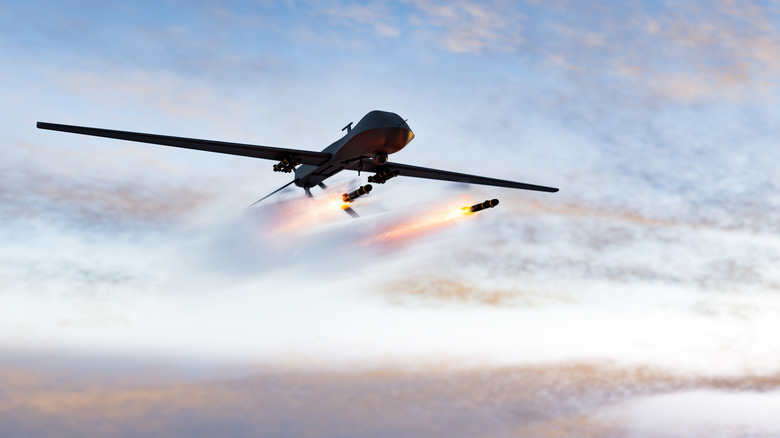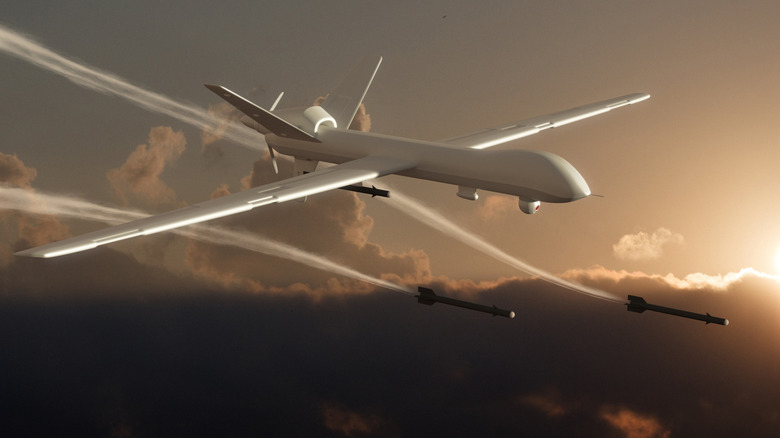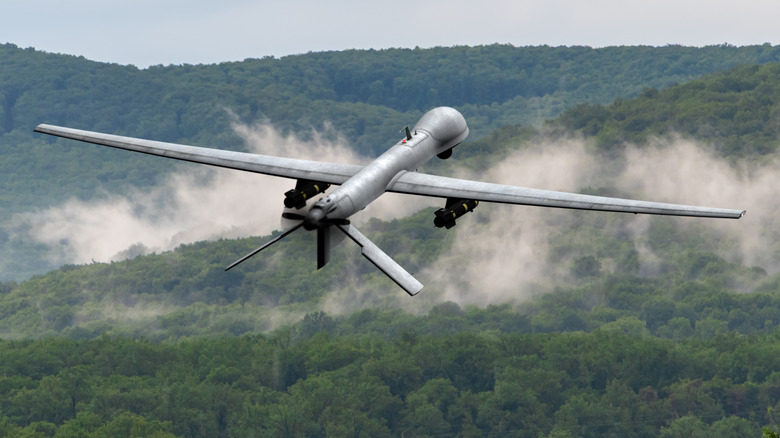What Are Lethal Autonomous Weapons Systems And Why Is The UN Trying To Ban Them?
Imagine a world where machines make life-or-death decisions without any hesitation or emotions, just artificial intelligence taking full control of deadly attacks. While it sounds like science fiction stuff, it's the very real debate surrounding lethal autonomous weapons systems, or LAWS. These are machines that can pick and attack targets in real time all on their own, without a human watching or approving the strike. This system is as terrifying in reality as it sounds on paper, and that's the reason why the UN is so concerned about its use.
These weapons systems are fast, efficient, and in some cases already being tested on modern battlefields. But just because these unbelievably high-tech military weapons exist doesn't mean they should be used unchecked. That's exactly why the United Nations is pushing for global rules — if not an outright ban — before these systems become more common. UN Secretary-General António Guterres has called them "politically unacceptable and morally repugnant," warning that once the trigger is handed to algorithms, we risk crossing a line that can't be uncrossed.
What makes LAWS so controversial?
Lethal autonomous weapons don't always rely on advanced AI, but when they do, they become even more unpredictable. Some use simple pre-programmed rules, while others can adapt mid-mission. That adaptability is exactly what makes people nervous. Since algorithms aren't perfect, one wrong signal or misidentification could lead to deadly mistakes. It's one thing for a human soldier to make a call under pressure and a different thing for a machine to do it with zero accountability.
The biggest concern? There's no one to blame if something goes wrong. Machines can't be hauled into court or feel remorse. "We cannot delegate life-or-death decisions to machines," Guterres warned. Groups like Human Rights Watch and the Campaign to Stop Killer Robots have been raising the alarm since 2013. More than 90 countries have raised serious concerns about removing human control from the use of LAWS, and many support a global push for rules that ensure humans remain in charge.
What's holding back the ban
The UN's Convention on Certain Conventional Weapons has been discussing LAWS since 2014, but progress on moving forward with a ban has been slow. Some countries, like the U.S. and Russia, aren't keen on fast-tracking any bans, while others, like China, support banning their use, but not development. In the meantime, technology is racing ahead, with new military drones, loitering munitions, and semi-autonomous systems already active around the world.
The concern is that the longer we wait, the more normal these systems become. Speaking to UN News, Nicole van Rooijen from Stop Killer Robots put it simply: "The cost of our inaction will be greater the longer we wait." Plus, with how cheap and accessible this tech is becoming, there's a real fear it could fall into the hands of rogue states. Guterres is pushing for regulations to be in place by 2026, but for now, it's mostly talk. Until then, the world sits in a dangerous gray zone, hoping humans don't get left out of the loop.


